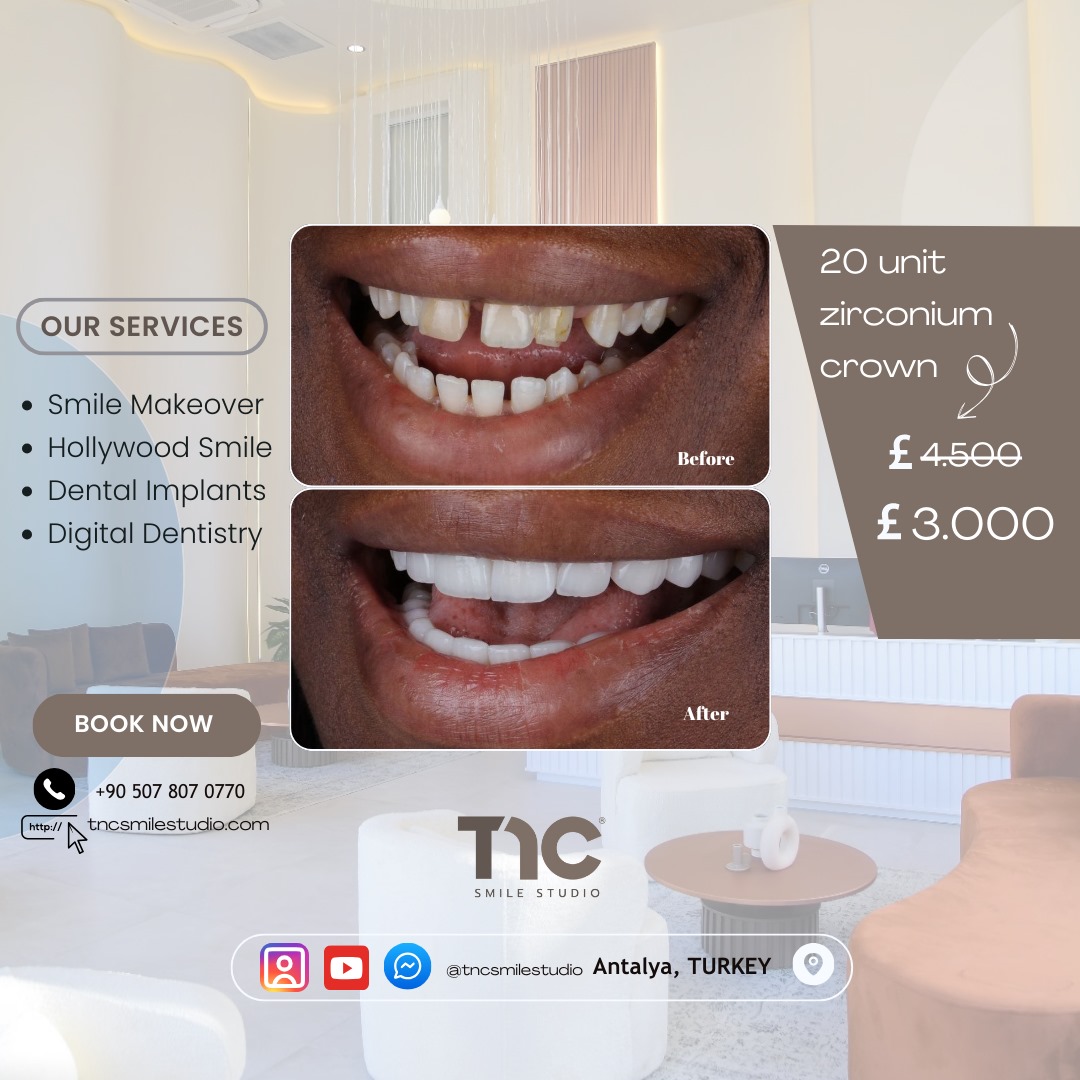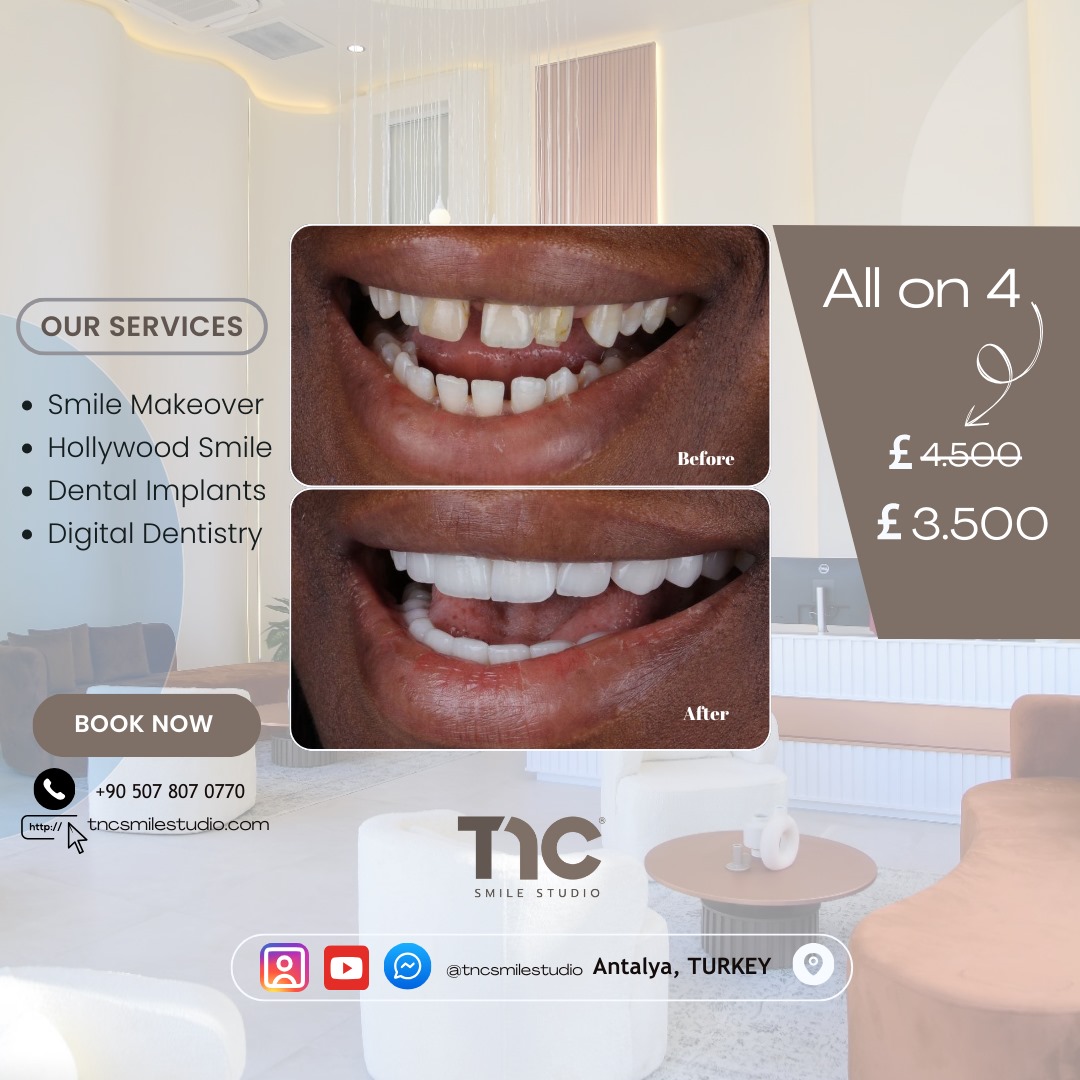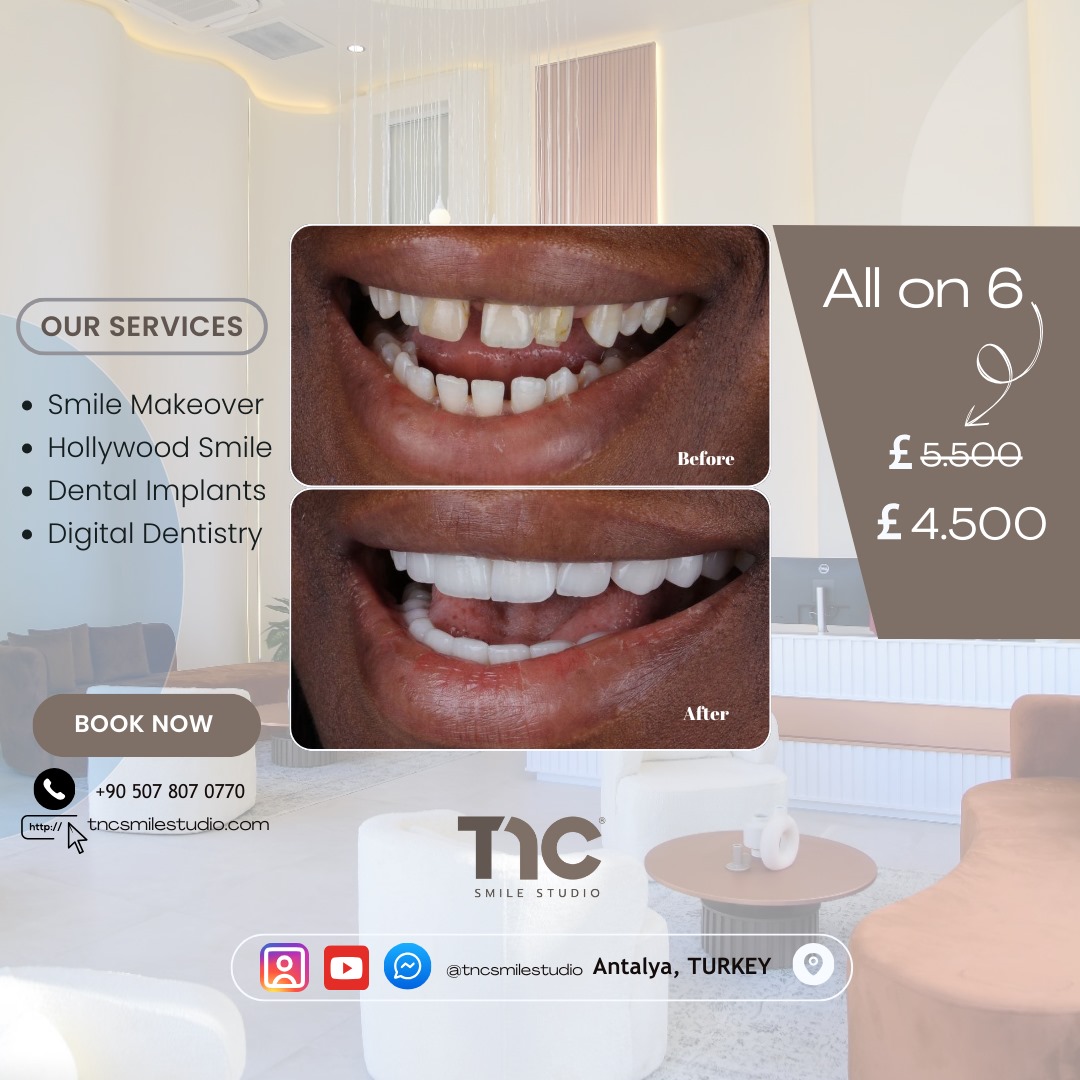Get information about dental crowns treatment with the detailed explanation of specialist dentist Seher Arseven.
Dental Crowns

Dental Crowns Turkey, Antalya.
A dazzling smile is the key to confidence. However, time, genetic factors, or certain external influences can negatively affect the aesthetic appearance of our teeth. Fortunately, with modern dentistry, achieving the desired perfection for our teeth is no longer a dream.
In this comprehensive article, you will learn what dental crowns are, who they are suitable for, their types, costs, and more, discovering ways to achieve a healthy smile.
What Are Dental Crowns?
Dental crowns are special prosthetics placed over teeth that are damaged, discolored, or misshapen for various reasons. They aim to restore the natural appearance and function of the tooth. Additionally, they make the teeth more durable.
How Are Dental Crowns Applied?
The process of applying dental crowns can vary depending on the expertise of your dentist and the type of crown chosen. However, the general steps are as follows:
- Examination and Planning: Your dentist first evaluates your teeth and oral health. The condition of the teeth to be veneered, factors like decay or gum problems, are considered to determine the most suitable type of crown and treatment plan.
- Preparation of the Teeth: A small amount of enamel is removed from the teeth to be veneered. This allows the veneer to fit properly and provide a natural appearance.
- Impression Taking: Precise impressions of your teeth are taken. These impressions are used to create custom-made crowns in a laboratory.
- Temporary Crowns: Temporary crowns are placed to protect the teeth and maintain aesthetic appearance while the impressions are sent to the lab.
- Fitting the Crowns: The lab-made crowns are applied to the teeth, checked for color, shape, and fit. Necessary adjustments are made.
- Permanent Bonding: Finally, the crowns are permanently bonded to the teeth using a special adhesive.
The process is painless and performed under local anesthesia. The duration of the procedure varies based on the number of teeth being veneered and the type of crown chosen.
What Materials Are Used for Dental Crowns?
The materials used for dental crowns vary depending on factors such as aesthetic appearance, durability, cost, and personal preferences. The most common materials for dental crowns are:
- Porcelain
- Provides the most natural appearance.
- Reflects light like natural teeth and has excellent color matching.
- Stain-resistant and long-lasting.
- More fragile compared to other types, especially for back teeth.
- Zirconium
- Extremely durable and aesthetic.
- Offers a natural appearance due to its light-transmitting structure.
- Lighter and more biocompatible than metal-supported porcelains.
- Slightly more expensive than porcelain.
- Metal-Supported Porcelain
- Durable and long-lasting.
- More economical.
- The metal base can cause dark discoloration of the gums over time.
- Less aesthetically pleasing than porcelain or zirconium.
- Full Ceramic (Empress)
- Metal-free, entirely ceramic.
- High light transmittance provides a very natural appearance.
- Ideal for people with metal allergies.
- More durable than porcelain but not as strong as zirconium.
- Composite Resin
- Can be applied in a single session and is more economical.
- Not as durable or long-lasting as porcelain or zirconium.
- May change color and wear out over time.
Who Is Suitable for Dental Crowns?
Dental crowns can be recommended for various aesthetic and functional issues. Generally, dental crowns are suitable in the following cases:
Aesthetic Concerns
- Teeth that are severely discolored, stained, or yellowed and cannot be remedied with whitening methods.
- Broken, cracked, worn, or structurally flawed teeth.
- Closing gaps between teeth (diastema).
- Correcting mild misalignment as an alternative to orthodontic treatment.
Functional Issues
- Strengthening teeth weakened by root canal treatment or large fillings.
- Repairing worn teeth due to habits like teeth grinding.
- Completing missing teeth with bridge applications.
- Replacing old or worn fillings with a more aesthetic and durable solution.
Who Should Not Get Dental Vrowns?
Dental crowns are generally not recommended for individuals under the age of 18 due to incomplete jaw and tooth development. Additionally, those with advanced gum disease may need to undergo gum treatment before considering crowns.
Types of Dental Crowns
Dental crown types vary based on the material used and the coverage of the crown on the tooth. The most common types of dental crowns are:
By Material:
- Porcelain Crowns: Provide the most natural appearance.
- Zirconium Crowns: Durable and aesthetic.
- Metal-Supported Porcelain Crowns: Durable but less aesthetically preferred.
- Full Ceramic Crowns: Metal-free and aesthetic.
- Composite Resin Crowns: Economical but less durable.
By Coverage:
- Full Veneers (Crowns): Cover the entire tooth.
- Laminate Crowns: Thin veneers bonded to the front surface of the tooth.
Other Types:
- Inlay/Onlay: Fill cavities on the chewing surface of the tooth.
- Overlay: Covers one or more cusps of the tooth.
Each type of dental crown has its unique advantages and disadvantages. Your dentist will help you choose the most suitable type based on your needs and expectations.
Cost of Dental Crowns
The cost of dental crowns varies based on several factors. Therefore, providing a definitive price is challenging. As of 2024, the average prices for dental crowns in Turkey are as follows:
- Porcelain Crown: 70$ – 160$ (per tooth)
- Zirconium Crown: 120$ – 240$ (per tooth)
- Metal-Supported Porcelain Crown: 45$- 90$ (per tooth)
- Full Ceramic Crown: 100$ – 190$ (per tooth)
- Composite Resin Crown: 40$ – 90$ (per tooth)
- Laminate Crown: 100$ – 200$ (per tooth)
A detailed examination by your dentist is necessary to create a personalized treatment plan. By getting information about different veneer materials and treatment options, you can choose the one that best suits you.
How Long Do Dental Crowns Last?
The lifespan of dental crowns depends on the material used, oral hygiene, and personal habits. They typically last 10-15 years or even longer with proper care.
Post-Crown Care
After getting dental crowns, certain important points need to be considered to extend their lifespan and protect your oral health:
First 24 Hours:
- Effect of Anesthesia: Avoid eating or drinking until the anesthesia wears off (approximately 2-3 hours).
- Avoid Extreme Temperatures: Your teeth may be sensitive; avoid extremely hot or cold foods and drinks.
- Consume Soft Foods: Prefer soft foods like soup, yogurt, and puree for the first few days. Avoid hard and sticky foods.
- Avoid Alcohol and Smoking: These can negatively affect the healing process.
First Week:
- Brushing and Flossing: Gently brush your teeth and use floss. Use the toothbrush and toothpaste recommended by your dentist.
- Mouthwash: Use a mouthwash recommended by your dentist to support oral hygiene.
- Follow-Up Appointment: Attend the follow-up appointment scheduled by your dentist to check the veneers.
Long-Term Care:
- Regular Brushing and Flossing: Brush your teeth at least twice a day and use floss regularly.
- Avoid Hard Foods: Avoid biting into hard foods like nuts and hard candies.
- Break Habits Like Nail Biting and Pen Chewing: These habits can damage your veneers.
- Regular Dental Check-Ups: Visit your dentist every six months for check-ups and professional cleanings.
Do not hesitate to consult your dentist if you encounter any issues or have questions.
Dr.Dt. Seher ARSEVEN
She graduated from Hacettepe University Faculty of Dentistry in 2016. Between 2016 and 2018, she worked at Liv Hospital. After completing a six-year training program at Gazi University Faculty of Dentistry, Department of Periodontology, she obtained her PhD. She specializes in aesthetic gingival surgeries, the treatment of gingival recessions, and gingival diseases, with her thesis focusing on peri-implantitis and implant surgeries. She has numerous national and international publications related to peri-implantitis and implant treatments. Additionally, she is skilled in advanced bone surgeries.

Before & After Photos
Packages

TNC Smile VIP Transfer Service
TNC Smile offers VIP transfer for international patients. We provide airport pick-up and private transport to the polyclinic and hotel, ensuring a smooth, comfortable experience throughout their stay.
TNC Smile 5-Star Accommodation
TNC Smile ensures a luxurious stay for our international patients by arranging accommodations at top-rated 5-star hotels. With comfort and convenience in mind, we offer the finest hospitality for a seamless experience throughout their treatment journey.















